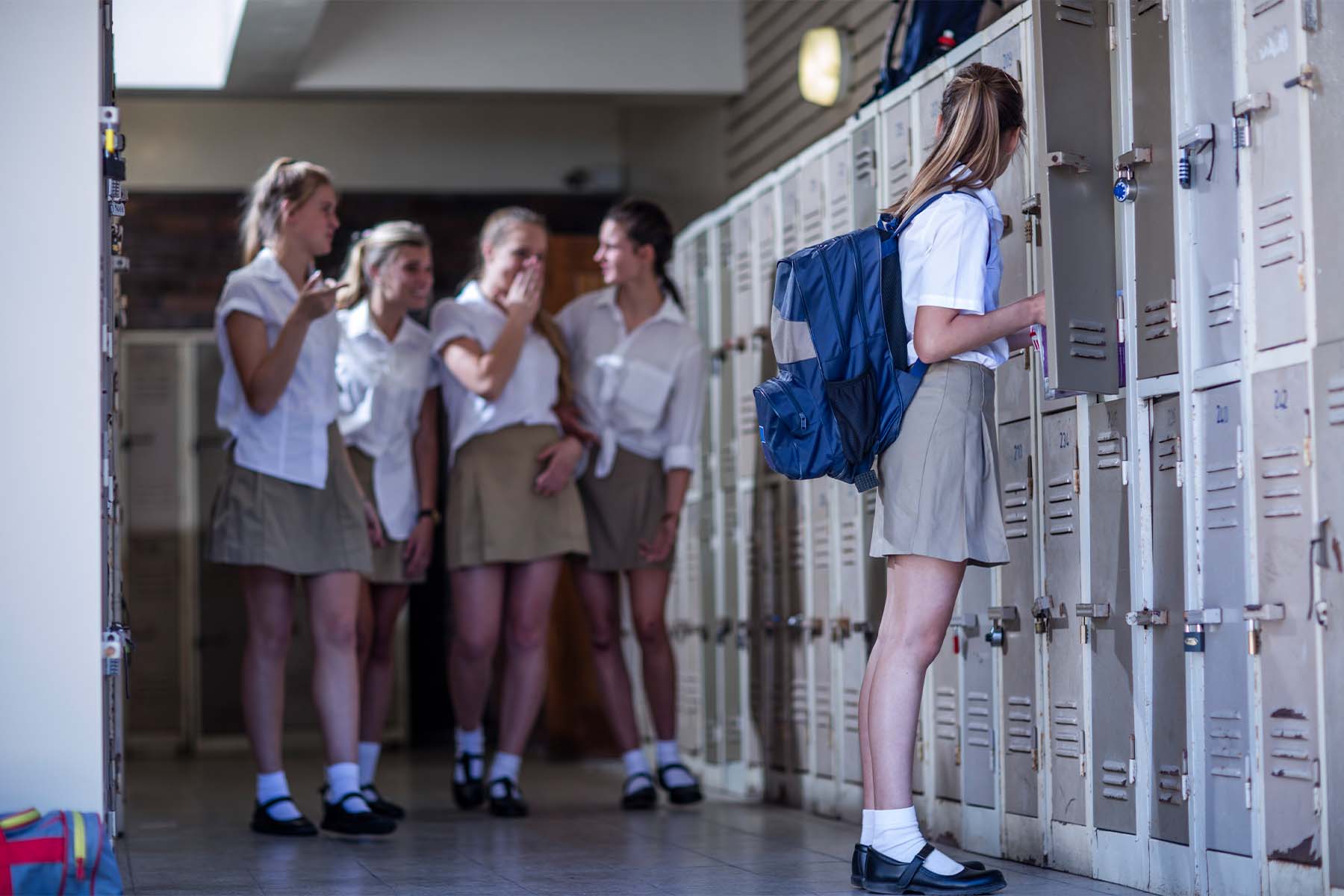
School refusal needs a national response

The recent Senate Inquiry rightly recommends a coordinated national approach to a growing national problem
Published 21 August 2023
From time to time, many Australian families experience challenging school mornings – wrangling tired kids to get them to school on time.
But there’s also a group of children, thousands of them, for whom the thought of going to school is so unbearable they just can’t go.

‘School refusal’ was a term widely publicised when on-site teaching resumed following the COVID-19 lockdowns.
At this time, we saw a sharp increase in students who felt unable to return to class when schools reopened. While the precise number of students having difficulty attending is unclear, there is consensus among researchers that the number has increased since the pandemic.
This increase led to a Senate Inquiry, The national trend of school refusal and related matters.
The committee released its findings in August 2023, with strong, sensible recommendations for a coordinated national approach with improved methods of data collection, a targeted research agenda and interventions delivered within a multi-tiered system of support

We can’t – not won’t – attend
It’s important to know that what we call school refusal isn’t truancy, which is a deliberate, unjustified absence.
Refusal happens when a young person is reluctant or refuses to attend school due to emotional distress associated with attending. They are transparent with their parents about this distress and parents have made reasonable efforts to address the issue.
This common misrepresentation comes from the terminology we use. School refusal implies that the young person is making a choice about their attendance.
But it’s not a choice for these students. For the majority, there are barriers to their attendance that mean they can’t, not won’t, attend school.
There are many reasons youth refuse school. School, family and child factors can often combine to help explain school refusal.
For example, at the school level, education systems can intentionally and unintentionally present barriers to attendance for students with disability, trauma, bullying and difficult personal circumstances.
Students may find it harder to attend when they don’t feel they belong or they don’t feel safe.

At the family level, parenting a child who is refusing school can be a challenging experience. Parents report increased levels of stress and anxiety as well as disruptions to the family routine.
At the child’s level, physical and mental health problems, adverse childhood experiences or disability have been identified as key factors in school refusal.
The predominant disability linked to school refusal is mental health, however, neurodivergent students and those with intellectual disability are also overrepresented.

Anxiety around being at school – or being away from home – is also common. This anxiety is then relieved by avoiding the situation that’s provoking it.
Evidence-based responses are needed
School is an important part of a young person’s development. It gives them educational opportunities as well as the skills and connections to form social relationships.
Addressing school attendance problems and issues underlying them is critical. Central to this is implementing evidence-based interventions and ensuring that students and families are provided with the support they need.
The Senate Inquiry recommends using multi-tiered systems of support (MTSS) for school refusal interventions. MTSS provides a three-tiered framework that helps with the organisation and allocation of resources.

At Tier 1, every student is supported to attend school by universal evidence-based strategies. It’s essential that these supports are part of the day-to-day school experience for all learners.
These Tier 1 interventions include enhancing the whole of school climate, social emotional learning curriculum, bullying prevention, transition programs and home-school-community partnerships.
School attendance teams can use data to identify early warning signs of school refusal. More intensive Tier 2 supports are then provided for those who require additional help.

Education
Are the kids OK?
Tier 2 interventions may include mentoring programs like check in/check out and check and connect, anxiety management techniques, social supports, exposure-based practices (building confidence by carefully exposing children to a school environment), social and coping skills training as well as referral to mental health practitioners.
If we look at Tier 3 interventions, these are individualised and intensive in nature, requiring extensive human and material resources which are reserved for the most chronic and complex situations.
Examples of Tier 3 interventions are the In2School and In2School@school programs that run in partnership with the University of Melbourne Graduate School of Education, Travancore School, the Royal Children’s Hospital and MacKillop Education Services.
The need for a national response
The Senate Inquiry advocates for a national response to addressing school refusal.
The 14 recommended actions include a national plan that will define school refusal and steer research into the causes of school refusal and effectiveness of interventions.

Accurate measurement of the prevalence of school refusal is a key recommendation. In Australia there is no uniform process of data collection, so we don’t understand the scale and scope of the issue.
Collecting accurate data on the predictors of school refusal can identify early warning signs which will lead to early intervention and prevent students from becoming chronically absent.
The School Non-Attendance Checklist is a screening tool that, when applied to absence data, can help to support the early identification of school refusal.

We also need good quality educational materials about school refusal.
There is no national resource where families and professionals can access reputable, evidence-based information.
This is a gap in the systemic response to school refusal (and school attendance problems in general). A good example of this type of resource is Attendance Works in the US, which provides a first response for those seeking information and advice.
In Australia, there are evidence-based parent resources for school refusal including a parenting guide and online modules for families struggling with school reluctance or refusal – but there is currently little available for schools.
The Senate Inquiry concluded that school refusal “has a profound effect on young people’s health and wellbeing, their sense of self-worth, their connection to friends and family, and their aspirations for life beyond school”.
We hope improved recognition of this issue and the clear guidance from the report will translate into better outcomes for our students, their families and the wider community.
Explore this topic further on the ‘Talking Teaching’ podcast from the Melbourne Graduate School of Education.
Banner: Getty Images

